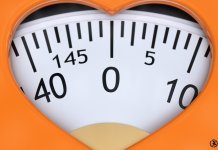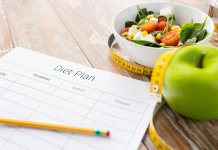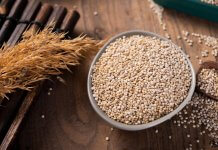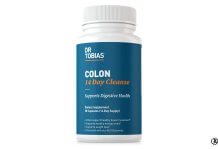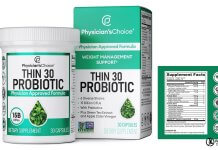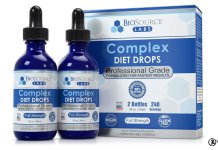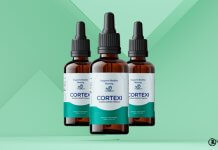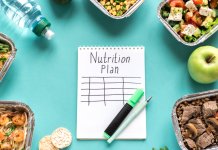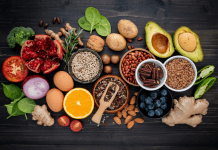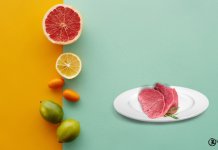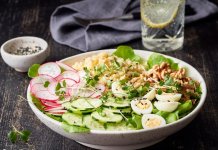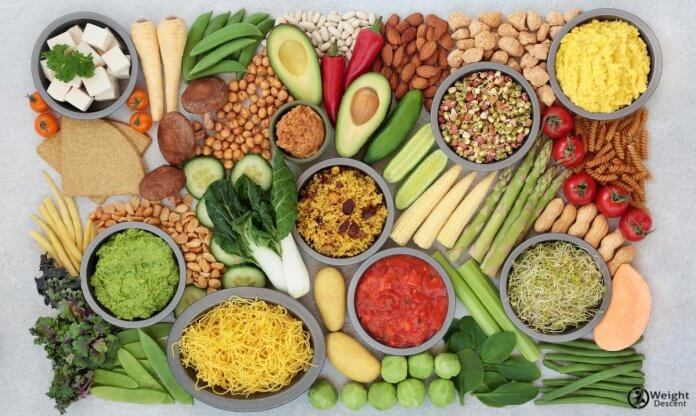I get commissions for purchases made through links on the site. As an Amazon and Clickbank Associate I earn from qualifying purchases. Learn more.
The contemporary lifestyle has made eating healthy and maintaining sustainable living incredibly challenging. However, eating healthy shouldn’t be rocket science since it’s entirely possible to achieve. Especially so, you can choose to go “all-organic” and green, taking only what plants offer. Plant-based diets are a viable way of offsetting sedentary living and the health risks it tags along with. Since plants are also remediating and refreshing, you might want to consider taking them and their products more often. This guide offers valuable insight into a plant-based diet, plans, and the nitty-gritty for healthy and sustainable living.
Estimated reading time: 16 minutes
Table of contents
- What is a Plant-Based Diet?
- A Plant-Based Diet for Beginners
- Special Nutrients You Shouldn’t Miss in Your Plant-Based Diet
- A Sample 7-Day Plant-Based Diet Meal Plan
- Plant-Based Diet Food List
- Plant-Based Diet Vs. Vegan Diet: What’s the Difference?
- What Vegans Avoid
- What are the Benefits of a Plant-Based Diet?
- Foods to Avoid In a Plant-Based Diet
- Plant Based Diet Books
- Conclusion
- Frequently Asked Questions (FAQs)
- Daily Greens – Organic Superfood Powder Formula – The 34 organic superfoods and the presence of 11 extracts and herbs in the Daily Greens powder make it the worlds’ super healthiest food for health lovers.
What is a Plant-Based Diet?
A plant-based diet primarily constitutes all plant products in their natural, unprocessed forms. It excludes all animal products, including dairy, fish, and poultry, although they may tag along occasionally. Most plant-based foods are low-fat and whole, excluding added sugars, processed oils, and white flour. More emphasis is usually on quality than quantity and is generally sourced locally. However, it’s not entirely clear whether genetically modified foods fall in and whether or not they compromise the quality.
However, don’t confuse a plant-based diet with a vegan diet. The two might be closely similar but have some nuances that set them apart. Keep in mind that you can take plant-based foods and not necessarily be a vegan. And also, since some vegans consume dairy from time to time, it doesn’t necessarily make their diet all plant-based. We’ll discuss more of the two later in this guide and debunk what’s often baffling.
A Plant-Based Diet for Beginners
If you’re trying a plant-based diet for the first time, things might seem weird. Usually, switching from your everyday diet to consumer plants and plant products can set you off. However, it’s feasible to get it in line and make it your everyday staple. Here are the essential tips to help you get started.
- Tips to Get Started
Remember, the switch should be gradual since replacing your regular diet can be somewhat an uphill task. However, if you feel you dive right on overnight, ensure that it doesn’t impact your appetite or affect your standard body functioning. You can use these tips to start a plant-based diet.
- Gradually Phase in Plant-Based Products
While switching to a plant-based diet abruptly is pretty OK, you can still gradually phase in plants products by replacing each item one at a time. Perhaps, you could continue munching on your burritos, but you can replace the meat and cheese with beans, vegetables, or whole rice. Also, make your split pea soup without adding beef broth or meat, or replace buggers with some grilled Portobello mushrooms. With time, you’re more likely to ingrain the culture in your diet and make it a habit.
- Eat More of Your Meatless Diets
The body doesn’t need too much meat so you can kick it out of your diet. You only need a few grams per week to keep you healthy. However, that doesn’t mean that entirely kicking it out of your diet will deprive you of your body’s essential nutrients. You can still get your necessary protein doses from plant products, including legumes and mushrooms, which are expert-recommended.
- Save More Time and Ignite the Interest to Keep On
Preparing separate meals can be daunting if your family doesn’t take plant-based meals. Besides, preparing these meals might take more time, which can be demoralizing. Therefore, to save on time, you can opt to buy pre-cooked grains or make larger pots of plant-based food and freeze them for later. Besides, you can cash in for pre-cut fresh vegetables to lift off the hassle of preparing them for cooking later.
- Choose More Organic Foods, Especially Corn, Vegetables, and Fruits
Fruits and veggies are the ultimate items to help you quickly switch to a plant-based diet. And, of course, if you successfully replaced your everyday food with these plant products, you’d have yourself to thank. If your diet constitutes about 70% of a combo of fruits, corn, and vegetables, the rest 30% becomes much easier to replace.
- Drink More Water and Avoid Sugary Drinks
There’s a credible reason why experts recommend taking water for the most part while staying away from sugary drinks. These drinks are usually highly processed and contain synthetic ingredients and preservatives. That may compromise your plant-based diet, defying the purpose of consuming whole and unprocessed food.
- Build the Idea of a Plant-Based Diet around Your Family
The people around you should help your course. And that includes your family who you share meals with. Therefore, make them conscious of your diet change plans, and they’ll give you a shove with it. Perhaps, if they won’t tag along with you, they’ll ensure to prepare separate plant-based meals. You can also encourage them to remove meat from their diet so that it doesn’t spark a craving in you.
Special Nutrients You Shouldn’t Miss in Your Plant-Based Diet
While plant-based diets are all nutrient-inclusive, there’s a chance that you’ll miss a few nutrients if you’re not overly conscious. That might deny you the essential macro and micronutrients that your body needs. Here are the particular nutrients you shouldn’t miss in your plant-based diet.
- Protein
Protein helps build muscles, rejuvenate your skin and strengthen your immune system. Besides, it’s essential for hormone production and body enzyme formation. It’s hard to miss a dose of protein in your diet since your plant-based diet essentially constitutes beans, seeds, nuts, whole grains, and vegetables.
- Iron
Iron transports oxygen around your body, and it mustn’t miss in your plant-based diet. You can get lump sum iron doses from most seeds, cereals, whole grain, dark-green vegetables, and nuts. If you can add some vitamin C to your diet, it’ll facilitate iron absorption by your body.
- Zinc
You can supply your body with zinc by taking bread, sprouted beans, and grains. However, it would help to soak beans and seeds for several hours before cooking them to remove phytates. These are compounds that prevent zinc absorption by your body. Other essential zinc sources include tofu, tempeh, nuts, and lentils.
- Calcium
Don’t also forget to add a dose of calcium into your diet since it helps in your heart’s functioning, muscle movement, and nerve activity. Take lots of green vegetables, including kales, broccoli, and cabbage. Soy, cereal, and almond are also rich calcium sources.
- Omega 3 Fatty Acids
Omega-3 fatty acids lower your risk of heart disease. Besides, they increase brain activity and strengthen your immune system. Therefore, take more chia seeds, flaxseed oil, and organic canola oil, among other foods.
- Vitamin D
The sun is always a perfect source of vitamin D, but you can include a few foods to reinforce it. Try taking more soy and almond milk to give your vitamin D supplies a shove. Keep in mind that the foods supplying you with vitamin D are only a handful, and perhaps, staying out in the sun might help.
A Sample 7-Day Plant-Based Diet Meal Plan
There are a whole lot of foods you can include in your plant-based diet and still get the total dose of nutrients your body needs. Depending on your preferences, you can go with various plant-based diet items since you’re spoilt for choice. Or, you can follow our 7-day plant-based diet plan to incorporate the habit as you make the baby steps as it is below.
First Day
Lunch: An avocado toast
Dinner: A combination of Veggie stir-fry and whole rice
Snack: An avocado salad
Second Day
Breakfast: Tofu and tomato curry
Lunch: Tomato sandwich
Dinner: Rice topped with vegetarian chili
Snack: Whole-wheat toast
Third Day
Breakfast: Burrito with beans
Lunch: Quinoa bowl and starchy potatoes
Dinner: Rice with black beans, topped with some avocado
Snack: Veggies with hummus
Fourth Day
Lunch: Whole-grain bread
Dinner: Kale and tofu curry
Snack: Zucchini chips
Fifth Day
Lunch: Roasted mushrooms and sweet potato fries
Dinner: Roasted mushroom, rice, and tomato curry
Snack: Hummus chews
Sixth Day
Lunch: Wheat pasta with a tofu curry
Dinner: Pizza topped with pineapple chops
Snack: Roasted chickpeas
Seventh Day
Lunch: A handful of almonds and cashew yogurt with berries
Dinner: Oyster crackers, kale, and tofu curries
Snack: Almonds
You might want to interchange the menu items and create combinations that suit you. However, ensure that your meal meets the nutritional requirements for a more balanced diet.
Plant-Based Diet Food List
As you prepare getting into a plant-based diet, ensure that you keep these foods on your radar.
- Vegetables
Vegetables are a go-for and an essential part of plant-based diets, constituting about two-thirds of the recipe items. They have loads of vitamins and minerals to keep you healthier and do your body a favor. Try including more broccoli, kale, and spinach in your diet. You can also factor in some carrots, peppers, asparagus, tomatoes, and cauliflower to make your diet entirely plant-based.
- Starchy Vegetables or Tubers
Starchy vegetables contain more starch and are an essential company in plant-based diets. They include foods such as potatoes and sweet potatoes, carrots, parsnips, and butternut squashes, among others. Besides, these foods give your body some much-needed energy to keep you built up, thanks to their starchy carbs.
- Whole Grains
Whole grains are usually natural and unprocessed, making them an ideal component in your plant-based diets. You might find it prudent to avoid white floor since it’s processed and instead resort to taking whole brown rice, barley, rolled oats, or quinoa.
- Healthy Fats
Healthy fats are usually unsaturated, and you can find them in avocado, unsweetened coconut, or olive oil. Be sure to include significant amounts in your diet to create a more healthy plant-based diet.
Plant-Based Diet Vs. Vegan Diet: What’s the Difference?
As we mentioned earlier, vegan diets can be closely similar, but a few differences exist to set them apart. For one, vegan diets are principled on the idea of not harming or killing animals, including birds, mammals, fish, and insects. That means avoiding meat consumption and resorting to plant alternatives offering similar nutrients. And while vegans refrain from meat, some still take products like dairy, honey, and eggs. Besides, veganism goes beyond what meets the mouth, but the entire idea of staying away from activities that humiliate animals, including zoos, dolphin shows, and aquariums.
On the other hand, plant-based diets only keep people from consuming processed foods, meat, and dairy. The idea here is to eat and stay healthy rather than invest on the premise of the sheer avoidance of harming animals. Essentially, whole and unprocessed foods constitute much of the diet, and still, it ensures that every nutrient is available.
What Vegans Avoid
There are tons of foods that violate the vegan community’s perceived principles. Any food that involves killing an animal or inflicts misery on animals is seemingly unfit and unethical to consume. However, not every vegan is an ardent custodian of these binding principles since some deflect to taking what’s prohibited. Here’s the list of foods and things that vegans usually avoid.
- Seafood, meat, poultry, eggs, and dairy.
- Cosmetics that contain animal products.
- Availing in animal zoos due to the perception that animals should be left free to roam in the wild ad confining them is against nature.
- Materials like silk, wool, leather, and feathers.
- Foods containing beeswax, honey, gelatin, and other animal products.
What are the Benefits of a Plant-Based Diet?
Plant-based diets have a ton of benefits that include the following:
- Low Risk of Diabetes
Plant-based diets offer a minimal chance of suffering from diabetes since they have less unprocessed sugar that your body needs more minor. That helps keep your blood sugar level from skyrocketing, culminating in unprecedented health risks. There are suggestions that plant-based diets help reverse type 2 diabetes. And whether or not that’s true, there’s indeed no speck of doubt if that’s possible. One primary reason to attest to this fact is that plant-based foods contain less saturated fats that usually induce insulin resistance. Besides, they’re high in fiber, giving the body the ability to absorb nutrients and regulate blood sugar.
- Healthier Weight
Plant-based diets are best for maintaining a healthy weight since they contain fewer calories than most heavily processed foods. Besides, they also contribute to weight loss, as a 2020 review puts it, which looked at nineteen intervention studies that justified the claim. Each participant was assigned a plant-based diet, and the results were taken later, showing that each of them lost a significant amount of weight. Another reason for this efficiency in weight loss is that plant-based diets fuel a healthy gut microbe population. That helps with digestion and, therefore, retains fewer calories in the body.
- Heart Disease Prevention
Plant-based diets help minimize the risk of heart disease and can be the perfect remedy even to reverse them. That’s according to a study that evidenced the uncanny ability of diets containing whole and unprocessed foods to reverse heart disease. The study made 198 intervention studies and followed up with a test to ascertain the truth of the findings. Particularly, plant-based diets seemingly helped reverse cardiovascular disease more efficiently in the long term. The volunteers who followed through to an average of 3.7 years recorded significant improvement in their heart health.
- Fewer Medications
One of the reasons why people find themselves checking in with their health providers more often is because of taking processed foods. They’re usually unhealthy and contain dense calories, increasing their risk of contracting heart diseases and diabetes. And since plant-based diets are all-natural and unprocessed, there’s an incredible chance that you’ll see your doctor less often. Additionally, plant-based foods are a remedy since they contain natural element forms that induce the body’s self-treatment processes.
- Healthier and Longer Life
The idea is that if you’re healthy, then you’ll live longer. And since plant-based diets constitute healthy eating, there’s an incredible chance you’ll stay in shape. That should guarantee a significant life span, letting you live longer than if you ate more processed foods. Munching on processed foods predisposes you to a vast array of health issues, compromising your immunity and perhaps drawing you to an early grave.
- It Saves You Money on Groceries
If you consume plant-based diets consistently and out of habit, there’s a perfect chance that you’ll spend less on footing the grocery bills. Processed foods are the most expensive, and their hefty prices add salt to the injury. You’re likely to spend more money on poor-quality groceries if processed foods are your kryptonite. On the other hand, plant-based foods are easy to find. You can source them from your local farms, where farmers grow them with high health standards and less GMO infusion. You can get them at a cut-price – way less than you would in the supermarkets and grocery stores.
- Plant-Based Diets Do the Earth a Favor
Vegetarians uphold the principle of conserving the environment by avoiding livestock meat and their products for the planet’s integrity. And, of course, there’s no denying how authentic that belief is since livestock keeping seemingly harms this planet. For instance, the greenhouse pollution resulting from cattle keeping due to the massive methane amounts emitted. According to the NIH study, ruminant livestock can produce between 250 and 500 liters of methane every day. That spells doom for the planet, contributing to the already worsening climate crisis. Perhaps, going all green with plant-based diets will cut the raging demand for meat and do the earth a solid!
Foods to Avoid In a Plant-Based Diet
You must avoid heavily processed foods to make your plant-based diet plan count, or it’d all be for nothing. Here are the foods you must stay away from:
- Refined Grains
Refined grains usually have nothing useful left for your body, and you must avoid them as much as you can. These foods include white flour, white rice, and white pasta, among others.
- Added Sugars
Some foods add lump sum sugar doses in your blood and can spark diabetes. Therefore, try avoiding fizzy drinks, sweet tea, cookies, pastries, and juice.
- Fast Foods
Fast foods are dense in less good calories and can induce weight gain. Refrain from cheeseburgers, chicken nuggets, and hot dogs to make your plant-based diet count.
- Processed Animal Products
It’s prudent to avoid animal products in your plant-based diet. However, should you opt for them, please don’t munch on heavily processed types, including sausage, bacon, and beef jerkies.
- Tea Burn – Tea Burn is a tea that has been created to help you burn fat, lose weight, and feel great. This product has been designed to help people who are struggling with a variety of health issues. It can be used by anyone who wants to improve their health and adjust their physique.
Plant Based Diet Books
Here’s a detailed list of recommended books on plant-based diets:
- “The China Study” by T. Colin Campbell and Thomas M. Campbell II: This groundbreaking book explores the health benefits of a plant-based diet and its potential to prevent and reverse chronic diseases.
- “Forks Over Knives: The Plant-Based Way to Health” by Gene Stone and T. Colin Campbell: Accompanying the documentary of the same name, this book provides practical advice and recipes for adopting a whole-food, plant-based diet.
- “How Not to Die” by Michael Greger, M.D., and Gene Stone: Dr. Greger examines common lifestyle-related diseases and offers evidence-based dietary recommendations to prevent and treat them.
- “The Plant-Based Solution” by Joel K. Kahn, M.D.: Dr. Kahn explores the science behind plant-based nutrition and offers a comprehensive guide to improving heart health through diet.
- “The Engine 2 Diet” by Rip Esselstyn: This book provides a 28-day plan to transition to a plant-based diet, along with delicious recipes and inspiring success stories.
- “Thug Kitchen: The Official Cookbook” by Thug Kitchen: This humorous cookbook offers easy-to-follow plant-based recipes with a no-nonsense attitude.
- “Eat to Live” by Joel Fuhrman, M.D.: Dr. Fuhrman outlines a nutrient-dense, plant-based eating plan to achieve optimal health and weight loss.
- “The Oh She Glows Cookbook” by Angela Liddon: Angela Liddon shares her favorite plant-based recipes, focusing on whole foods and vibrant flavors.
- “Plant-Based Nutrition, 2E” by Julieanna Hever, M.S., R.D., C.P.T.: This book provides a comprehensive overview of plant-based nutrition, including meal planning, fitness tips, and scientific insights.
- “The Plant-Based Diet Meal Plan” by Heather Nicholds: Heather Nicholds offers a practical meal plan with easy-to-follow recipes to kickstart your plant-based journey.
These books cover a wide range of topics related to plant-based diets, from the science behind their health benefits to delicious recipes that make transitioning to plant-based eating enjoyable and sustainable.
Conclusion
A plant-based diet is a healthy go-to option since it keeps you away from high-calorie and unhealthy processed foods. Most plant-based diets incorporate plant products and whole foods having no compromising additives. Besides, they tag along with numerous benefits, including preventing heart disease, low risks of acquiring diabetes, and better weight management. Following this diet isn’t strenuous either since once you fall in line, you’ll perhaps never re-subscribe to your previous eating habits.
Frequently Asked Questions (FAQs)
It’s prudent to exclude meat from your plant-based diet entirely if you want it to work better for you. However, if need be, minimize it as much as possible and avoid processed meat.
Plant-based diets are entirely healthy and have numerous benefits. They minimize – and sometimes reverse -heart disease and reduce the risk of getting type 2 diabetes and cancer. And since you can replace every nutrient from processed foods and meat, it makes it a go-to option for living healthy.
There’s recent evidence that plant-based diets can reverse heart disease. A study by the NIH concluded that people who maintained a plant-based diet for 3.5 years recorded remarkable improvements in their heart health. That means there’s a chance that plant-based diets help reverse heart disease.
Every medical practitioner understands the importance of plant-based diets in human health and will recommend it if you have specific ailments it can help alleviate. If you’re battling type 2 diabetes or ail from certain cancers, doctors will recommend the diet switch to prevent further escalation.
Plant-based diets contain detoxifiers and cholesterol-melting elements that help unclog arteries for seamless blood movement. Besides, abandoning foods having high quantities of saturated fats from unprocessed foods in your regular diet works to your advantage.



